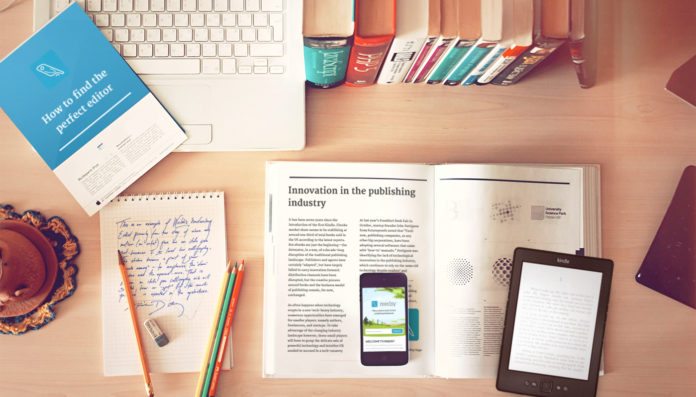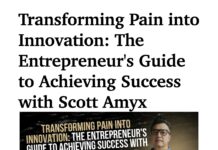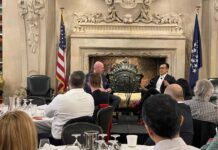
How the Publishing Industry Has Changed
The publishing industry has undergone many changes in the last couple of decades. Self-publishing has become mainstream, the avenues to promote books have increased, and the channels to sell books are no longer limited to bookstores.
Self-Publishing vs. Traditional Publishing
The biggest change is in the way self publishing has come up. Right up to the 1990s, publishing your book through a publishing house was the only known way. Digitization has changed that and now many new authors go the self-publish route.
Self-publishing has become popular because authors have complete creative control over content, much faster publishing time, complete ownership rights, perceived better cost advantages, and so on.
The reasons to self-publish are compelling indeed, but the perception of better cost advantages deserves a special mention, because in reality, it often works exactly the opposite. The authors bear all the cost when they self-publish. They might make slightly more profit per book sold if they market well. However, research shows that self-published authors rarely make any profit at all and actually lose money on their self-published projects. This is not the case with traditional publishing because they receive a guaranteed advance and have no cost upfront. According to Book Scan’s 2016 data, the average self-published title sells fewer than 250 copies per year and fewer than 2,000 copies over its lifetime. On the other hand, the average book with a major publisher sells more than 10,200 copies over its lifetime.
Although cost is a significant factor, the biggest problem with self-publishing is credibility. Who is going to read your work if they have never heard of you? Dianna Booher, a highly successful author and communication expert with 47 books to her credit who has published with leading publishers including Penguin Random House, McGraw-Hill, and HarperCollins/Thomas Nelson, shares her experience. She is not an advocate of self-publishing. She says, “Anyone can self-publish these days. Therefore, it is far more important to have a major publisher publish your book.”
When you have a publisher on board, the book buyer knows that the publisher has done the due diligence. This is all the more important when it comes to business books. It’s not just someone’s random thoughts that are poorly organized and put together in the form of a book. Having a publisher is a built-in filter for book buyers. “In today’s cluttered publishing space, going with a major publisher works much to your advantage as an author,” shares Dianna.
Lisa Sansom, a successful coach, speaker, and consultant, shares her observation regarding self-publishing, “I’ve read so many self-published books that are atrocious—bad spelling, poor grammar, poor organization, bad writing. The author may have excellent points, but they are hard or impossible to discern in the midst of the mess.”
If you go the self-publishing route, Lisa advises the following:
- Get a professional editor to work with you
- Hire a quality illustrator and an experienced marketing professional and promoter
- Give your book title a lot of thought
Other Changes
Another big change has to do with book promotion. Earlier, it was pretty much the sole responsibility of the publisher to promote a book. Now, with the advent and rapid popularization of social media, there are alternative channels, often with a much wider outreach. Facebook, YouTube, Twitter, eCommerce websites, personal websites, and so on…the options are limitless. With these digital channels, you can reach every remote corner of the world.
The same goes for book distribution. “You are no longer limited to the physical bookstores. Instead, you have a wide array of channels to make your books reach a much wider audience,” says Dianna.
Another noticeable change due to social media is that publishers have started approaching new authors to write books for them. As you build a strong online presence, participate in forums, and connect with other professionals, you might grab the attention of a publisher on the hunt.
Cost Considerations
An important factor in getting your book published is the costs. A number of authors think they can save money by going the self-publishing route. Bypassing the publisher, they get to keep all the proceeds. While true to an extent, this is a very narrow view of the scenario.
Authors published by major publishing houses can have an option to sell their own book as well if they really want to. All they need to do is to simply negotiate a buy-back clause in their contract and buy their book from the publisher at 60-80 percent discount. Subsequently, the authors can resell their book on their website or at their events.
A publisher does take the lion’s share of the sales, but this publishing option offers a wide range of advantages. Dianna elaborates, “With a publisher on board, you get a solid marketing and production platform. You don’t need to worry about having an experienced PR team and an established distribution network. Those functions are supplied by the publisher. Of course, many authors may want to add their own PR agent to the team for extra support. That’s always a great idea. In addition, their sales network spans not just throughout the country but across continents.” Then, Dianna stresses the importance of subrights sales such as paperback sales, mass market paperback sales, audio books, video rights, training products, merchandising rights, foreign rights. The publisher bears all costs for translating the book and related products and localizing the content for different international markets.
It is almost next to impossible for individual authors to get all this done on their own. The advantages translate into better sales in the long-term. The cost of these services result in unbeatable accessibility and availability of your book. Even when it comes to social media, established publishers have the advantages of reachability, scale, and credibility.
Dianna strongly advocates going the traditional route of publishing to leverage all these advantages. To emphasize her point, Dianna takes an example of building a house. “You don’t go out and build your own house. You don’t seek an electrician, a plumber, a mason individually. Instead, you give the task to a general contractor who brings together different professionals to build your house. Similarly, you need a number of different experts to publish a good book successfully.”
Advice on Contract Terms
Dianna strongly advises that new authors make the contract terms and conditions absolutely unambiguous.
Book Rights When Book Sales Fall
The very first thing that authors must take care of is retaining rights to the book. Dianna says, “Make sure there is a clause in the contract to this effect: The author gets the complete rights to the book back if the book sales fall below a particular mark (x dollars or x number of books per quarter/year).”
There are times when book sales drop substantially for any book, even for books on evergreen topics like communication. “Getting such a clause will ensure that publishers don’t hold the rights to your book forever,” says Dianna. Publishers wouldn’t usually put that in the contract or they put in a figure favorable to them. So, if your book is not selling and you don’t have such a clause, you just cannot do anything about it. With book rights returned to you, you can creatively re-purpose and reuse the content in other ways.
Book Rights to Cover Disruptive Technology
Another important piece of advice Dianna gives covers the impact of technology on publishing rights. She emphasizes the need to have this in the contract: “All rights not expressly granted to the publisher are retained by the author.”
Since technology changes rapidly, this clause takes care of ambiguity when it comes to interpretation of vague phrases. This has happened in the past when no one saw the rapid change of digitization. In the absence of such clause or with a highly ambiguous clause open to any interpretation, authors have lost a lot of money to publishers in the past.
Other Revenue Streams
While undoubtedly the book sales is your biggest potential revenue stream, it is by no means the only one. Keynote speeches are something that can bring in decent revenue as well. Reach out both offline and online for speaking opportunities. Next, you must always look out for opportunities for other media outlets. Not only will it help your book sales, it establishes you as an expert on the topic, creating even more opportunities.
Best Way to Reach out to Potential Readers
Dianna strongly recommends podcasts, as it is one of the best ways to reach your potential audience because podcasts have loyal listeners, as opposed to TV and radio shows. As an author, however, you should do your research in selecting a suitable podcast: Are the questions relevant? Is the podcast interview done in a structured manner? Is the discussion focused on the book you want to promote? Therefore, the role and ability of the podcast host becomes very important. Good quality podcasts directly translate into increased sales as well as building a good brand image.
Dianna has had very positive experience with Stephen Woessner’s podcast at Predictive ROI.
What Genre Should You Write?
Dianna’s advice here is simple and straight-forward: “Write the genre you know.”
Most publishers tell authors to stick to and specialize in one genre because the audience for different genres is essentially different. Further, it takes time and effort to build an audience for each genre. While Dianna generally agrees with this conventional wisdom, she says there are exceptions, and her literary agent agrees that a few authors are ‘the exceptions that prove the rule.’ She has written in a number of different genres. She has written books on business, communication, self-help, Christian inspiration, women’s fiction, and other young adult fiction at different points in her life.
How Dianna Became a Professional Author and Speaker?
Dianna Booher has her own inspirational story of becoming published. She was seeking something to do from home while taking care of her toddlers. In addition, her husband was on the verge of losing his job as he was struggling with severe depression. Realizing it was up to her to become the family’s support, Dianna completely immersed herself learning to write well and finished her master’s degree in English literature.
Once her first book was released, she started getting other opportunities and has never looked back. Dianna also runs a coaching program for authors to get their book published. Throughout her journey, Dianna has faced innumerable obstacles, but she has never let an agent’s or editor’s rejection stop her. And that attitude underlines her success today.


















